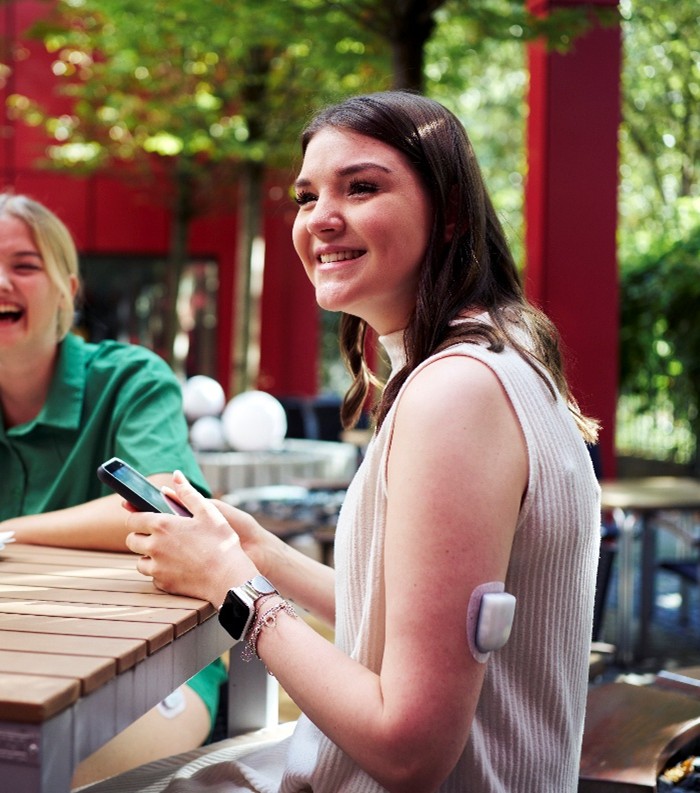That invisibility is both a blessing and a curse. It’s nice not to be defined by your illness, but it can also feel lonely — because so few people really notice the small battles happening behind the scenes. Eating something quietly during a meeting so you don’t go low. Taking a break alone at lunch to reset instead of chatting with everyone else. Or just being quiet because your body is tired — and people assuming you’re distant or moody.
The biggest misunderstanding is that diabetes is predictable. You can do everything right — count carbs, adjust insulin, sleep well — and still, your body does its own thing. Hormones, stress, lack of sleep, one wrong dose, a small cold — and suddenly everything’s off. There are no guarantees. Some days it flows. Some days it doesn’t. And the pressure to “perform” no matter what your body is doing… that’s something few really grasp.
Over time, I’ve learned that flexibility is survival. I have to be flexible with my body — but also with myself. Getting angry at my numbers doesn’t change them. Still, it happens. The frustration, the exhaustion, that small inner scream of “Why today?” And then you keep going, because you have to. Because life doesn’t stop for your blood sugar.
What truly helps are people who don’t overreact, but simply get it. Coworkers who don’t stare when you eat during a meeting. Managers who understand that doctor’s appointments aren’t “time off.” People who don’t say “poor you,” but genuinely ask how you’re doing. Those tiny moments of empathy mean everything. They make you feel seen — not as “the diabetic,” but as a human being doing their best every single day.
And then there are the hard days. When the sensor alarm kept you up half the night. When you walk into work already tired, trying not to show it. When you just wish someone could understand how much energy it takes to appear “fine.”
I’m not writing this for pity. I’m writing it because so many of us feel this — and still keep showing up, smiling, functioning. There’s a kind of strength that comes from constantly managing yourself. A patience you build because your body doesn’t always cooperate. And a discipline no one sees, because it happens quietly, all day, every day.
Diabetes at work isn’t an obstacle, but it’s not easy either. It’s constant navigation — between control and trust, between responsibility and acceptance. It’s learning not to blame yourself when things go wrong.
In the end, I just wish more people understood how much strength it takes to simply be here. That sometimes we fight more than we show. And that understanding — real, gentle, honest understanding — can make everything a little lighter.
